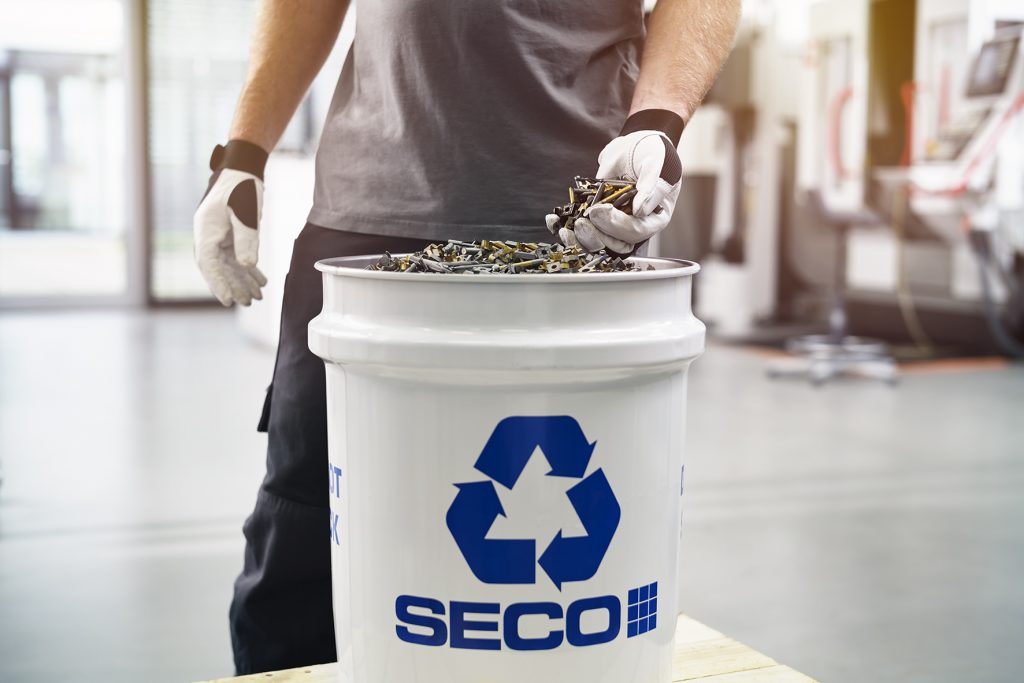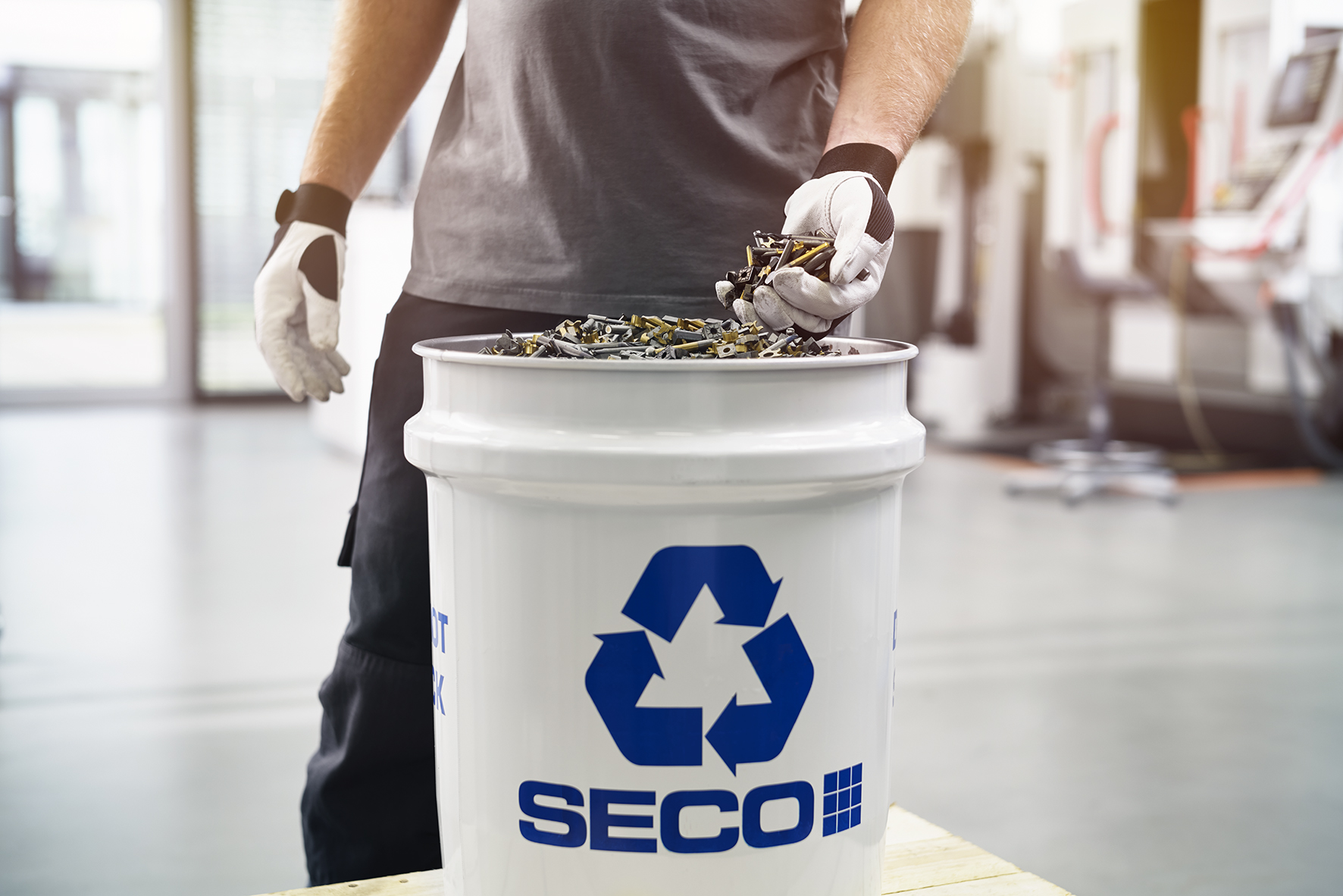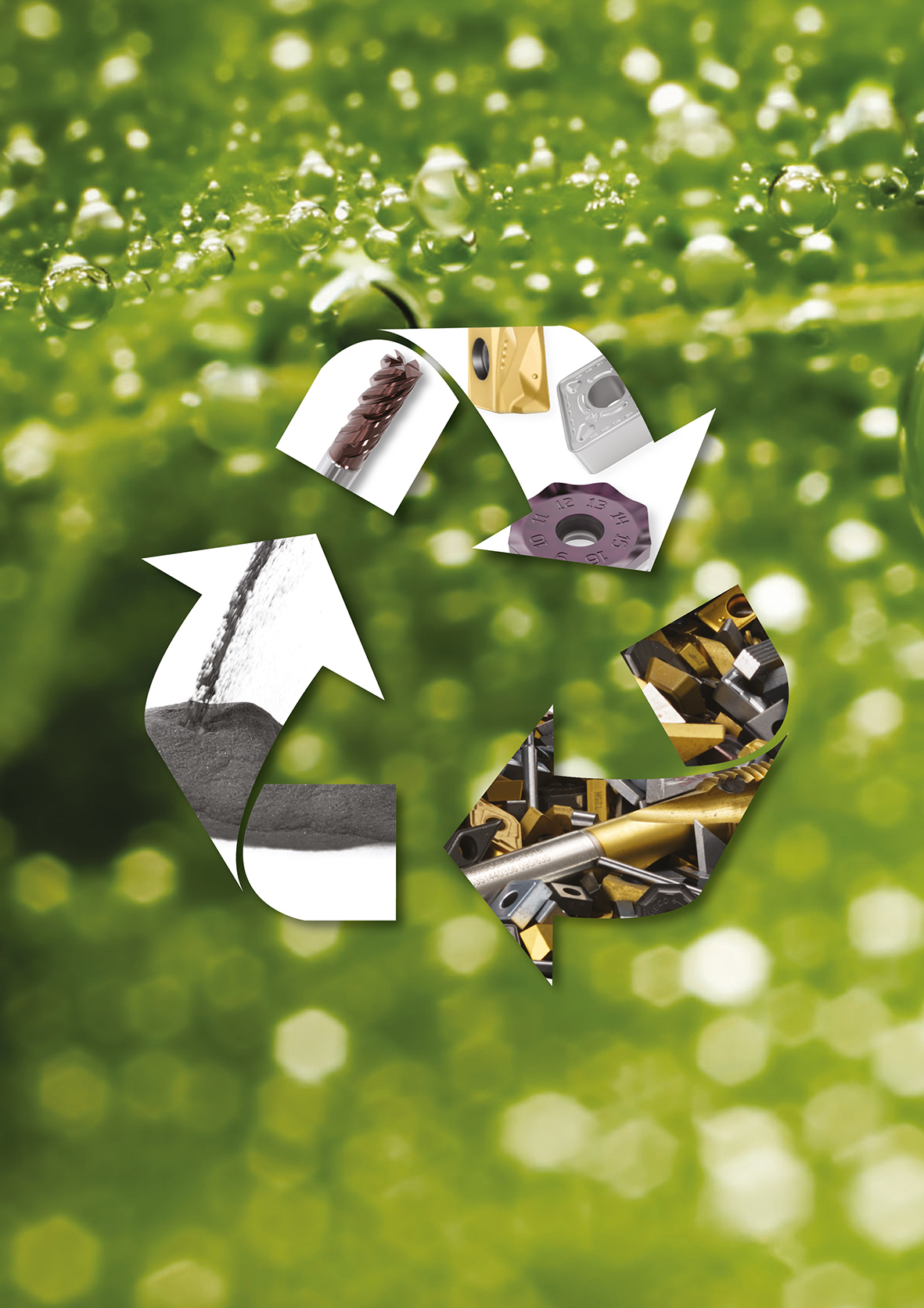Seco Tools sets ambitious recycling target for circular economy
Seco Tools sets ambitious recycling target for circular economy
Seco Tools plans to make a strong contribution to the circular economy with an ambitious recycling goal while at the same time continuing to make reliable tooling.n

 Seco Tools plans to make a strong contribution to the circular economy, which prioritizes separating economic activity from the consumption of finite resources and designing ways to remove waste from our system of economic activity.
Seco Tools plans to make a strong contribution to the circular economy, which prioritizes separating economic activity from the consumption of finite resources and designing ways to remove waste from our system of economic activity.
Though it is by no means the only aspect, recycling plays a vital role in the circular economy by asking consumers and manufacturers to look at how we use the earth's scarce and finite resources, and what can be done to ensure that we extract maximum value and usage from them.
Recycling will play a key role in reaching Seco Tools ambitious goal of being 90% circular by the year 2030, with a number of broad changes to processes and business models leading the way. "It's a challenging target, but we see this as very important for our company and our business," said Ted Forslund, Sustainability & Audit Coordinator at Seco Tools. "What is good for Seco Tools is that we already have very good recycling processes, so now it's about creating a good partnership with our clients so that they understand the value of us buying back tools, so that it becomes a closed circle where nothing goes to waste."
 Globally, only 8.6% of all the resources are recycled, which means that over 90% of everything is used once and then disposed of. Due to the nature of the business of Seco Tools, the company is in a strong position to change that paradigm by buying back tools that have reached the end of their productive lives and recycling or repurposing them into new tools. "If we increase that kind of trade where we buy back old and get customers to understand the advantages of it, we can reduce the climate impact as we won't need to use new materials and metals. It's a win-win in many ways," said Forslund.
Globally, only 8.6% of all the resources are recycled, which means that over 90% of everything is used once and then disposed of. Due to the nature of the business of Seco Tools, the company is in a strong position to change that paradigm by buying back tools that have reached the end of their productive lives and recycling or repurposing them into new tools. "If we increase that kind of trade where we buy back old and get customers to understand the advantages of it, we can reduce the climate impact as we won't need to use new materials and metals. It's a win-win in many ways," said Forslund.
There is a growing awareness of environmental concerns, and suppliers and customers are keen to see initiatives that address them. "This has proved very positive so far with customers. They know that the tools we produce using recycled materials are of the same very high standard, that there is no drop-off in quality. There is now also a market for the buy-back of tools that have reached the end of their useful lives, and that is a positive thing for them too. It's about getting this into our business relationships in a positive way," said Forslund.
In a circular economy recycling is very important, but it is also the last thing we should do after we reduce, repair and reuse.
"This is one important component, but there are other aspects to the circular economy, and we have to look at them all. One of those is the lifecycle of our products – how can we design them so that they last a little longer, and that they can be recycled when they do reach the end of their useful lives? How can we produce them using renewable energy and sustainable supply chains? The essence of the circular economy is preserving the value that we have already created," says Ted Forslund.
Recycling helps in terms of minimizing waste, but it is far from the only way to do so. There is a wide range of areas that can be analyzed with a view to stopping the "leakage" of valuable resources – delivery chain logistics, sorting, warehousing, risk management, power generation, and even molecular biology and polymer chemistry. Cost-efficient and better-quality collection and treatment systems and effective segmentation of end-of-life products will enable Seco Tools to support the economics of circular design.
One of the main problems in addressing issues to do with the environment and climate change has been the sheer scale of the task, but Forslund believes that the Seco Tools goal of 90% circular by 2030 is attainable. "It is essential to work with our suppliers and customers in order to take on the global challenge. If we do, we can create more value with less waste within a safe operating space for our planet—again, it's a win-win situation," he concludes.
For more information on circular economy, please contact a local Seco representative or visit our sustainable business page on www.secotools.com.





